
The Free Press

Oh my God! Caroline! Hi! What are you doing here?
Sorry. . . Who are you?
It’s never not awkward. You see someone who went to your high school in, say, a coffee shop in Canada, and bound over to say hello, only to find they don’t recognize you.
We’ve all been there. But Jana Kozlowski ends up there more often than most. That’s because she’s what’s known as a “super-recognizer.” Yes, that is the scientific term. And yes, she has done a test, confirming that she’s in the top 2 percent of the population when it comes to facial recognition. In practice, that means that she very often says to her husband, “Look, there’s that actor who played a receptionist for 10 seconds in a decade-old Netflix show.”
And she regularly has to tell people who’ve forgotten her: “We worked in different departments of the same company of 5,000 people, six years ago!”
It’s equally awkward to be the other person in this scenario, though: To be the one who has to say, “Um, have we met?” This is a position Sadie Dingfelder finds herself in all the time, because she’s the opposite of a super-recognizer—she’s face blind. She’ll make a plan to have dinner with a friend, then won’t recognize him when he shows up. She mistook a stock image for her own cousins. Sadie has a neurological condition known as prosopagnosia, which means she’s in the bottom 2 percent of the population for facial recognition. This puts her, according to one Harvard scientist, “on par with a mediocre or below-average macaque.”
Today, we’re bringing you the stories of these two women, who see the world so differently than the vast majority of Americans—but whose experiences bear a striking resemblance. Jana had no idea she was a super-recognizer until she got bored during the pandemic and Googled “good at people face memory am i genius.” Sadie was 40 when she heard about a researcher who was trying to train people to get better at facial recognition—and, by signing up for the study, discovered that she’s “legit face blind.”
After all, as Sadie writes, “Most of us assume that our conscious experience is roughly the same as everyone else’s.” Usually, we’re too busy questioning what we see in the world. Few of us actually question how we see it. But after you’ve read these two stories, you’ll definitely start.
When my husband dropped me off at the trailhead, I felt like a kindergartner on the first day of school. “Have fun!” he said, before driving away. A group of outdoorsy-looking ladies stared at me, and I knew why: I’m a 42-year-old woman who depends on her husband for rides.
Pushing aside my embarrassment, I greeted the hiking group with false confidence. I’m new in town; I’m here to make friends. As the women introduced themselves, I tried various tactics to make their names stick in my mind. Jean was wearing jeans. (But she probably owns other pants!) Sandy has sandy-blond hair. (But so do at least five other women standing around her!)
I was tempted to keep faking it—to plaster my face with a dumb smile, keep conversations vague, and avoid using names completely—but I’d promised myself that I’m not doing that anymore. I needed to come clean to this group of strangers about my disability.
“Just so you know, I’m face blind,” I told Sandy (I think?) as we hoofed it up a steep hill.
“Oh, me too!” she replied. “I’m just terrible with names.”
Inwardly, I rolled my eyes and sighed. My problems go much, much deeper than forgetting names. I forget faces—including my own. I can’t always identify myself in photographs. I have a neurological disorder called prosopagnosia, which means my brain lacks the specialized face-recognition software that 98 percent of the population has. The condition is colloquially known as face blindness, and it affects about six million Americans, the vast majority of whom have never been diagnosed.
Click here to continue reading…
I did a double take when Christina first walked into the LA office where I used to work. What were the chances that another girl from my high school in Connecticut would get a job in the same department of the same company, nearly 3,000 miles away from where we grew up? I rushed over to her, grinning widely. But when I greeted her, Christina looked at me blankly.
I mentioned the high school we had both gone to, thinking it might jog her memory. It didn’t. Yes, she had gone there, but no, she didn’t recognize me, and, frankly, she seemed weirded out that I recognized her. Our school had over 1,500 students and Christina was two years behind me. We had never shared a class, we had no friends in common, and I’m pretty sure we never spoke.
At the time, I had no explanation for why I remembered her. This was eight years ago, and I didn’t yet know there is a name for people with my uncanny powers of recognition. Otherwise, I might have told her I am a “super-recognizer”—though that might not have improved the awkwardness.
Ever since I was a kid, I have been good at remembering faces. My friends will ask me to compare blurry dating app photos with LinkedIn headshots of men they’re interested in, and it doesn’t matter how many years apart the photos were taken: I can always tell immediately if it’s the same guy. And I have had many, many interactions with people I recognize who evidently do not recognize me.
It wasn’t until I’d reached new depths of boredom during the pandemic that I decided to do a little research about this quirk of mine, and discovered that in 2009, researchers from Harvard University and University College London published a paper that first coined the term “super-recognizer” for those of us with “extraordinary face recognition ability.”
Click here to find out what Jana did next…
Watch Jana and Sadie talk about recognizing people:
If you see yourself in either of these pieces: Get in touch! Write Letters@TheFP.com.
For more on this subject, we recommend reading an essay by friend of The Free Press Katie Herzog, who recently discovered she has aphantasia—that is, she can’t visualize anything, let alone faces.
And if you like what we’re doing, subscribe to The Free Press today:


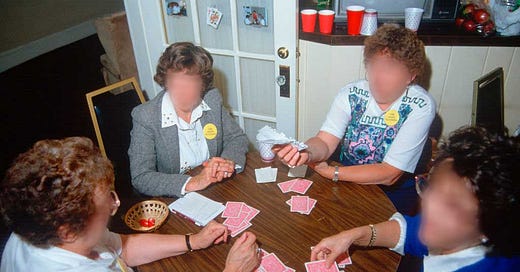







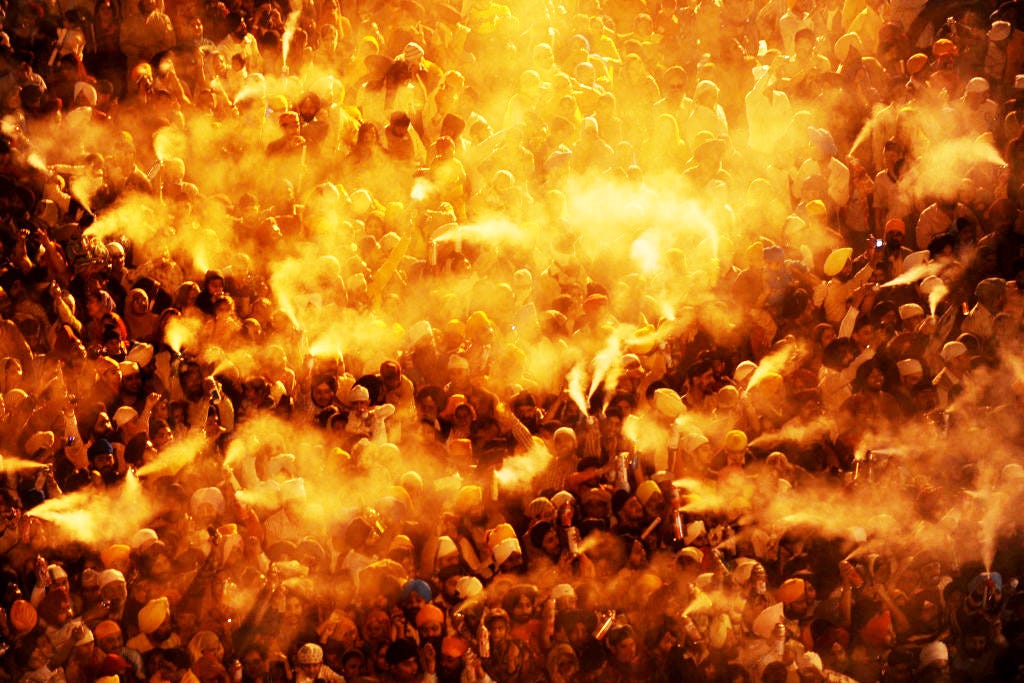

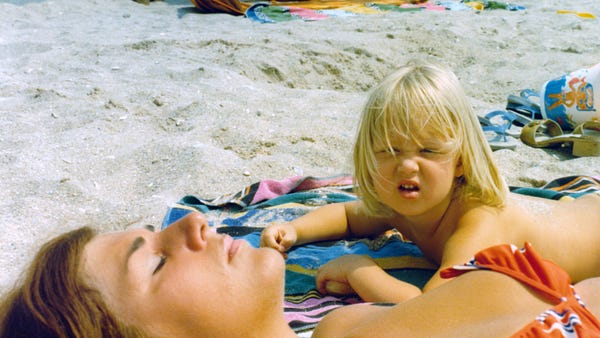

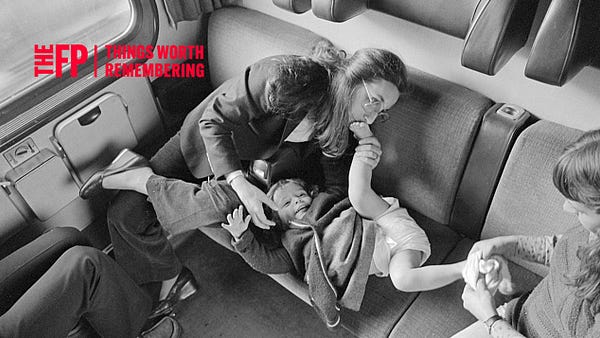

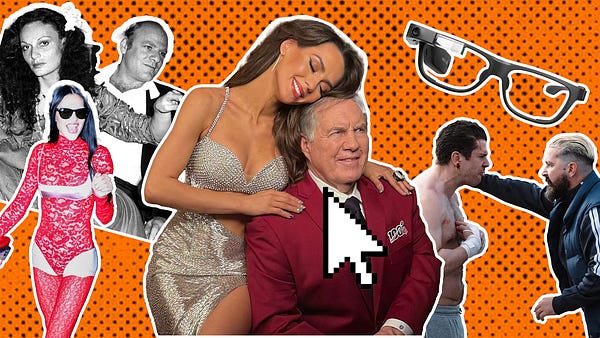

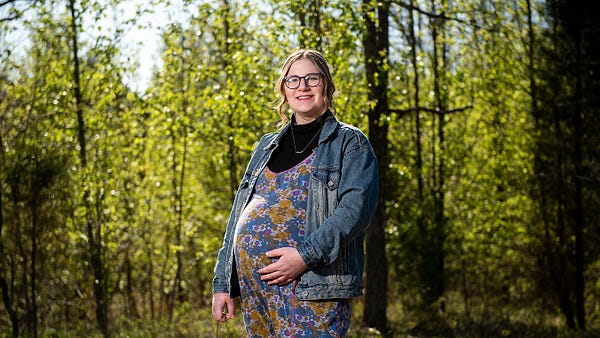

Just thought I'd add this, if off-topic: I saw a man interviewed some years ago on a television show. He was blind, but he could see faces, that is, he could see nothing at all around the face in front of him, only the face. I had never heard of such a thing before that.
I’m always pointing out to my wife that so and so was in some movie years ago but she can’t see it until I point it out and she looks it up on the web.
My problem is names.